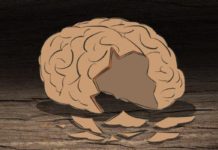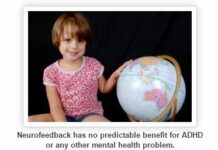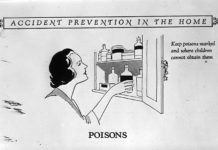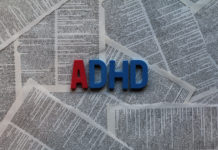Study Finds Music Therapy May Be Effective in Clinical Practice
In a new study published in The Journal of Child Psychology and Psychiatry, Professor Sam Porter and co-authors, present the results of a music...
What if ACEs (Adverse Childhood Events) Were the Basis of Mental Health Treatment?
What would happen if the mental health system fully recognized the pervasive and profound impacts of trauma on their clients? How might a deeper appreciation of the multi-faceted sequelae of childhood maltreatment and toxic stressors reshape mental health services? While the implementation of trauma-informed care in mental health programs has made significant inroads, the dominant bio-reductionist model continues to constrain and undermine progress.
The ADHD Diagnosis is a War of Semantics, Waged on Children
Since I am new on Mad in America, I will tell you; my mission is to debunk the ADHD diagnosis. My goal is to add common sense to a world where drugging kids for acting like kids is all the rage. When discussing ADHD with concerned adults I share how little is required to earn a diagnosis of ADHD. Learning just how non-scientific the diagnosis actually is, for many, is a shocking discovery.
Poor and Foster Care Children More Likely to be Diagnosed and Treated with Psychiatric...
Study details Medicaid-insured birth cohort’s exposure to psychiatric medications and mental health services.
Experts Question the Benefits of Brain Imaging Research for OCD
Two experts—a leading neuroscientist studying OCD, and a psychiatrist specializing in OCD treatment—question whether expensive brain imaging research has added anything to the treatment of OCD.
Teacher Wellbeing Matters for Student Mental Health
Teacher’s personal wellbeing plays a role in students’ mental health outcomes, suggests a new study.
Racial Discrimination a Clear Contributor to Youth Mental Health Disparities
Greater perceptions of discrimination during adolescence are linked to more depressive and internalizing symptoms.
“Neurofeedback and ADHD”
The Mental Health Review blog discusses several studies comparing neurofeedback to placebo for ‘ADHD.’ “Many parents are being told that neurofeedback will ‘cure’ ‘ADHD’...
Air Pollution Linked to Mental Health Problems in Children
A new study, published in BMJ Open-Access this week, found a significant link between the level of air pollution in a community and the mental health of the children living there. After controlling for socio-economic status and other potential variables, researchers in Sweden discovered a strong association between the concentration of air pollution in a neighborhood and the amount of ‘antipsychotic’ and psychiatric drugs prescribed to children. The link remained strong even at pollution levels well below half of what is considered acceptable by the World Health Organization (WHO).
Researchers Find that Textbooks Include Biased Information About ADHD
A review of academic textbooks finds that they often leave out effect sizes and molecular genetics findings, both of which suggest minimal impact of genetics on ADHD. Instead, textbooks focus on overblown conclusions from behavioral studies.
2 Reasons Why Time-Outs Do Not Work
The fundamental importance of connection to a child helps us to understand the use of "Time-Outs" which, used improperly, can be like pouring gas on a fire in a situation that is already not working; causing a distressed child to go further awry and potentially contributing to symptomatology that puts them at risk of being identified as ADHD, anxious, or bipolar.
More Physical Activity-Based Mental Health Interventions Needed in Schools
What physical activity-based programs are being implemented in schools, how are they being researched, and what kind of impact have they made?
ADHD, Bigfoot, and the Missing Links in Research
Like so many others, I have wanted to embrace the idea that research supports such beliefs as “ADHD is a chronic disease plaguing children”, and/or “Bigfoot exists”. I mean, who wouldn’t? We assume that research is based on sound evidence; information we can trust. Who wouldn't want to believe evidence that there is a simple medical explanation for those annoying behaviors exhibited by children in the process of developing into responsible young adults?
School Culture May Contribute to Overdiagnosis, Study Finds
Officials at a school that was more focused on ADHD diagnoses described children’s behavior in terms of individual illnesses, taking children out of the context of their social interactions, race, gender, and socioeconomic status.
Large Increase in Poison Control Calls for Children Taking ADHD Drugs
New data shows that calls to US poison control centers have increased significantly for children taking stimulant ADHD drugs.
Researchers Confirm That Relative Age Impacts ADHD Diagnosis
The youngest children in a class are more likely to receive an ADHD diagnosis than their peers.
The Presumption of Incompetence: Why Traditional ADHD Treatments Fail
The two most popular interventions for ADHD are drugs and stringent control. Those who believe in the traditional biological determinist view assert that others must provide the control that people diagnosed with ADHD lack. In this treatment protocol, diagnosed individuals are remanded into treatment that mimics institutional care (i.e., others control their access to resources and their behavior is restrained with drugs). While both of these impositions can yield some short-term benefits, they can also produce unwanted side effects much like what happens when there is incarceration
Despite Claims, EPA Supplement Does Not Improve ADHD Symptoms in Youth
A new study reports that the supplement EPA improved ADHD symptoms but a closer look calls these results into question.
Youngest Children in Class More Likely to get ‘ADHD’ Drugs
The researchers suggest that developmental immaturity is mislabelled as a mental disorder and unnecessarily treated with stimulant medication
Race and Class Affect Teacher Perceptions of ADHD Medication Use
Study uncovers teachers’ attitudes surrounding ADHD medication use and examines the influence of race and social class on teacher beliefs.
Experts Decry Dangerous Use of Antipsychotics in Children
In a featured article for Psychiatric Services, psychiatrists from Dartmouth raise the alarm on the increasing numbers of children prescribed dangerous antipsychotic drugs. Despite the fact that data on the safety of long-term use of these drugs in this vulnerable population “do not exist,” the rate of children and adolescents being prescribed antipsychotic drugs have continued to increase over the past fifteen years.
“No Evidence Ritalin Makes a Difference Long Term for ADHD Kids”
The Sydney Morning Herald reports that, three years into an Australian study that is following 178 children with ADHD and 212 children without ADHD, the...
First Systematic Review of Leading School-Based Mental Health Programs
Results reflect moderate to strong evidence in support of the non-pharmacological school-based interventions reviewed in the study.
Study Investigates Long-Term Effects of Social and Emotional Learning Programs
Social and Emotional Learning (SEL) programs have gained popularity in U.S. schools in recent years. A new study examines the nature and longevity of their impact on students.
Study Reveals Inconsistency in ADHD Diagnostic Determinations
Researchers compare differences between research and clinical diagnoses of ADHD and explore the consistency of clinical determinations over time


























